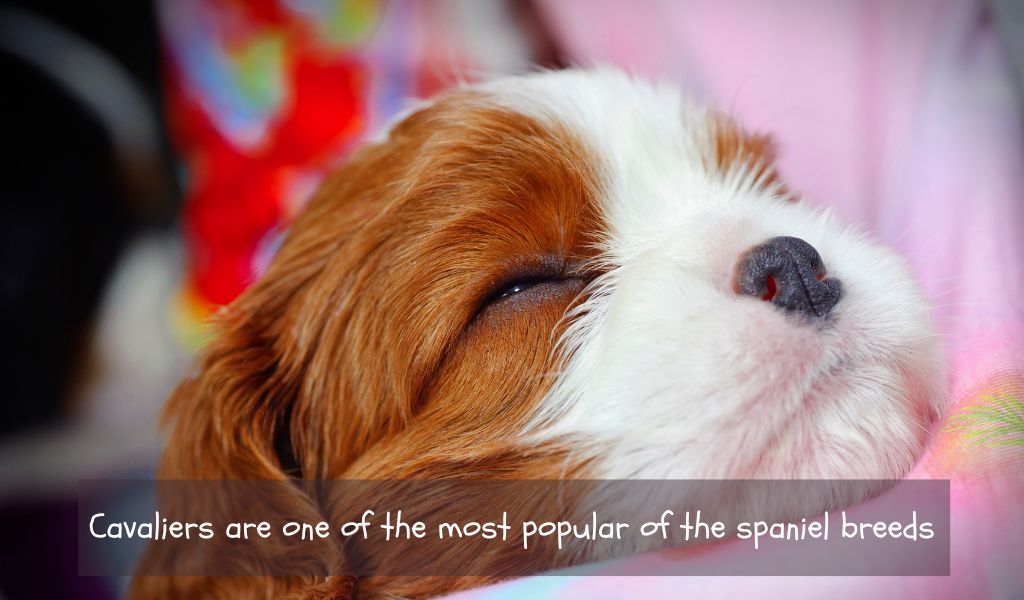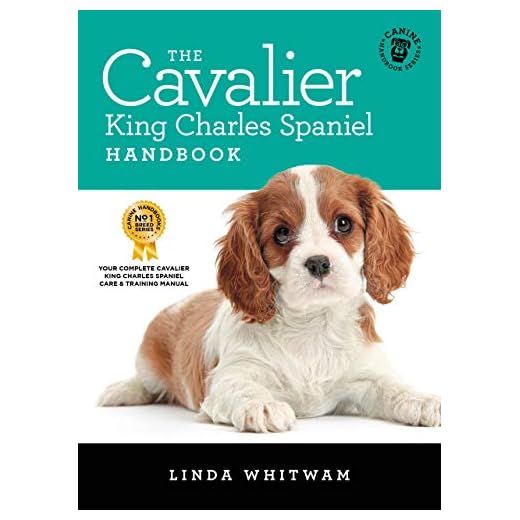The Cavalier King Charles spaniel is a beloved and popular dog breed, known for their affectionate and playful nature.
They make great family pets, but also excel in agility and obedience competitions.
If you’re considering breeding Cavaliers, it’s important to understand the ins and outs of the process.
This article will cover everything you need to know about breeding Cavalier King Charles Spaniels, from why they are so popular to how to care for them during and after pregnancy.
Why are Cavalier King Charles spaniels so popular?
Cavalier King Charles spaniels have been loved for centuries, and for good reason.
They are small and friendly, making them great companions for families and individuals alike.
Their affectionate and playful nature makes them great with children, and they are known to be good with other pets as well.
They have a long and silky coat that requires regular grooming, but their overall grooming needs are relatively low.
They are also a relatively healthy breed, with a lifespan of around 12-15 years.

What you need to consider when breeding Cavalier King Charles spaniels
Before breeding Cavaliers, it’s important to consider a few key factors.
First and foremost, it’s important to ensure that both the dam and sire are healthy and have no genetic conditions that could be passed on to the puppies.
It’s also important to consider the temperament of the parents, as well as their conformation (the overall physical appearance and structure of the dog).
Additionally, you’ll need to consider the financial and time commitment that breeding requires.
How to tell the right time for breeding
The best time to breed a Cavalier King Charles spaniel is when the bitch is in heat, which typically occurs twice a year.
This is when her body is ready to accept a male’s sperm and become pregnant.
It’s important to pay close attention to the bitch’s behaviour during this time, as she will be more affectionate and receptive to the male.
The mating process
The mating process for Cavalier King Charles spaniels begins with the female, or bitch, entering into heat.
This typically occurs twice a year and can be determined by observing changes in her behaviour and physical appearance such as swollen vulva, restlessness and seeking attention.
It is important to consult with a veterinarian to confirm that the bitch is healthy and ready for breeding.
Once the bitch is in heat, she will be receptive to mating with a male, or stud, dog. The stud dog should also be examined by a veterinarian and cleared of any genetic health issues before breeding.
During the mating process, the stud dog will mount the bitch and insert his penis into her vagina.
The act of mating can last several minutes to an hour, and several matings may be necessary for successful fertilization.
It is important to remember that breeding should be done responsibly and with the goal of improving the breed.
This includes selecting healthy and well-tempered parents, and ensuring proper care and socialization of the puppies.
How to know if your bitch is pregnant
There are a few signs that can indicate a bitch is pregnant, such as a swollen belly and nipples, as well as a decrease in appetite and activity levels.
A veterinarian can also perform a physical examination and take x-rays to confirm pregnancy.
How to look after a Cavalier King Charles spaniel when she is pregnant
During pregnancy, it’s important to provide the dam with a nutritious diet and plenty of rest.
Regular vet check-ups are also crucial to ensure that both the dam and puppies are healthy.
It’s also important to keep a close eye on the dam’s behavior and address any issues that arise.
How to determine when the puppies are due to be born
The average gestation period for a Cavalier King Charles spaniel is around 63 days.
However, it can be difficult to determine the exact due date, as there can be variations in the length of pregnancy.
A veterinarian can give a more accurate estimate by performing an ultrasound or palpation.
What to do during the labour process
During labour, it’s important to provide the dam with a quiet and comfortable space.
It’s also important to monitor her progress and intervene if necessary, such as if she is having difficulty delivering puppies.
A veterinarian should be on hand to assist with the birth if needed.
Puppies need to be kept warm at all times during their first few weeks. A heat lamp, suspended above the whelping box should provide enough heat.
Make sure that the area where the puppies live is clean, dry and free from draughts.
How to care for the mother and puppies after the birth
After the birth, it’s important to provide the dam with plenty of rest and a nutritious diet.
The puppies should be kept warm and fed by the dam or with a suitable milk replacement.
Regular vet check-ups are also crucial to ensure that both the dam and puppies are healthy.
After the puppies are born, it is important to provide them with proper care and nutrition.
This includes:
Keeping them warm: Newborn puppies are unable to regulate their own body temperature, so it is important to keep them in a warm environment. A heating pad or a warm water bottle covered in a towel can be used to provide warmth.
Providing them with milk: Newborn puppies will need to be fed milk regularly. The mother should be able to provide milk for them, but if she is unable to, you will need to bottle-feed them with a commercial puppy milk replacer.
Keeping them clean: Newborn puppies will need to be kept clean and dry. This includes changing their bedding frequently and wiping them down with a warm, damp cloth.
Socializing them: It is important to start socializing puppies from a young age. This includes handling them frequently, exposing them to different sights, sounds, and textures, and getting them used to being touched and handled.
Regular veterinary check-ups: It is important to have a veterinarian examine the puppies shortly after birth to ensure that they are healthy and to address any issues that may arise.
Vaccination: Consult with a veterinarian to know when to vaccinate the puppies and ensure that they are protected against common diseases.
Training: Start training your puppies as early as possible, begin with basic commands and socialize them with different people, animals and environments.
It is also important to remember that puppies require a lot of time and attention, so it is important to be prepared for the added responsibility before breeding.
Final Words
In conclusion, breeding Cavalier King Charles spaniels is a big responsibility that requires careful consideration.
It is important to ensure the health and well-being of the parents and the puppies.
Proper care, nutrition, socialization and training are essential for the puppies to grow up to be happy and healthy adult dogs.
Additionally, regular veterinary check-ups are crucial for monitoring the health of the puppies and addressing any issues that may arise.
Breeding dogs is a long-term commitment and should not be taken lightly, so it is important to be prepared for the added responsibility before embarking on this journey.







